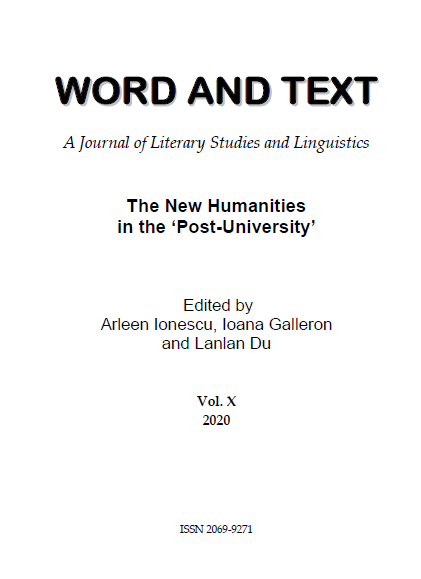The Remediation of (Post-)Humanities
The Remediation of (Post-)Humanities
Author(s): Laurent MilesiSubject(s): Media studies, Aesthetics, Political Philosophy, Structuralism and Post-Structuralism, Politics and communication, Politics and society, Culture and social structure , Theory of Communication, Adult Education, Higher Education , History of Education, Psychoanalysis, Phenomenology
Published by: Universitatea Petrol-Gaze din Ploieşti
Keywords: remediation; Jacques Derrida; sign vs. trace; Bernard Stiegler; pharmacology; videogames; posthumanities;
Summary/Abstract: ‘Humanity does not exist at all yet or it barely exists.’ French historical figure Jean Jaurès’s statement, famously echoed by Jacques Derrida, then by Bernard Stiegler, provides a fittingly provocative starting point for my reflections on the present condition and future of the ‘humanities’, envisaged both as the pluralization of what differentiates ‘us’ from other species and as the academic implementation of programmes (as well as the philosophical questioning) in the name of humanism.This article investigates the condition of the humanities in the digital age as always already that of the ‘posthumanities’. The impact of the Derridean deconstruction of the sign as technological ‘trace’ is recalled as an antecedent to Stiegler’s conception, from his first volume of Technics and Time onwards, of humanity as indissociable from an exteriorizing technicity which gave rise to a third kind of, or ‘epiphylogenetic’, memory. The second part looks at Stiegler’s notion of ‘pharmacology’, his diagnostic of the enslavement of contemporary homo technicus through tele-technologies and his pragmatic search for socio-political, cultural and educational remedies. Taking my cue from his approach as well as inflecting Bolter and Grusin’s notion of ‘remediation’, I conclude with a final section envisaging tomorrow’s ‘remedial’ (post)-humanities, adducing as precursor examples a couple of creative practitioners (Mark Taylor and Gregory Ulmer) and emphasizing the rich potential of videogames in such a ‘re(-)creative’ process.
Journal: Word and Text, A Journal of Literary Studies and Linguistics
- Issue Year: X/2020
- Issue No: 1
- Page Range: 126 - 142
- Page Count: 17
- Language: English

